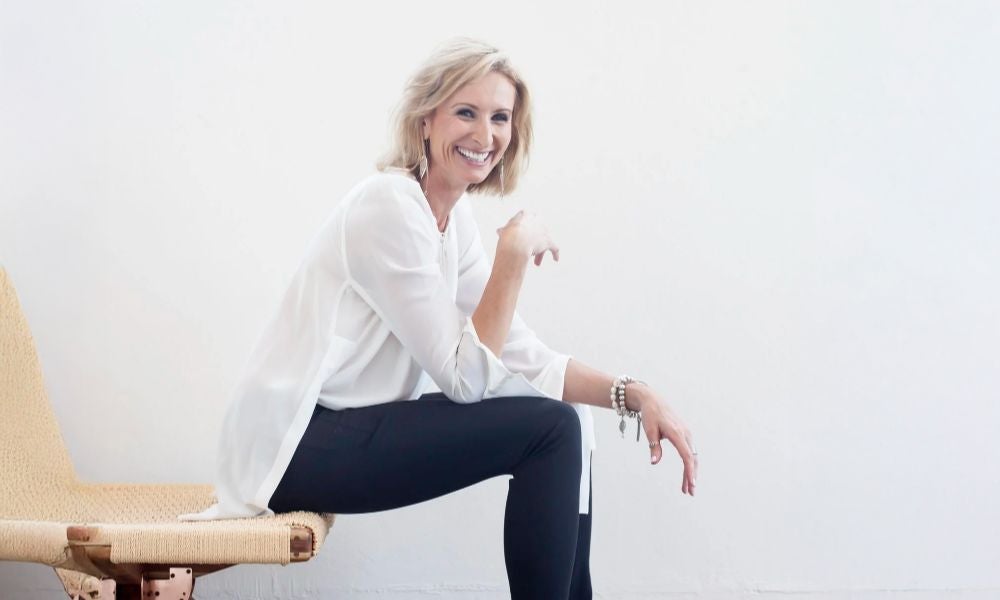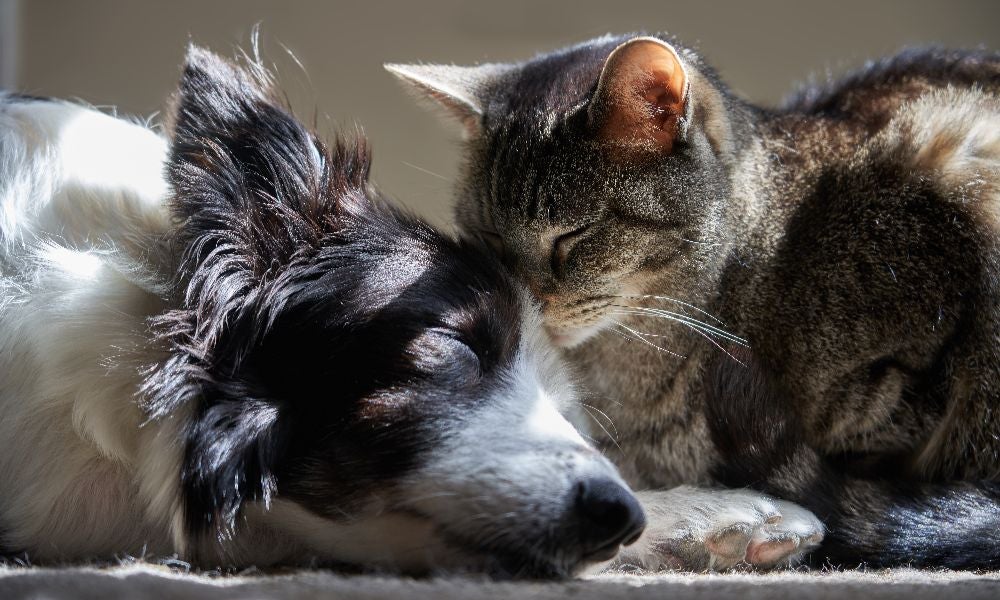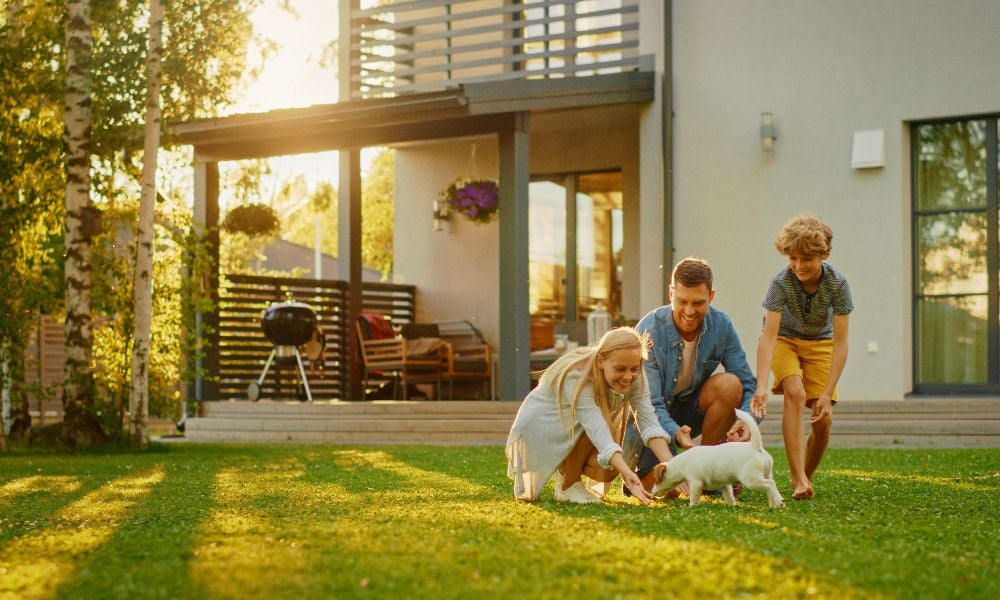Fur babies, big business: Behind the rise of Rufus & Coco
Download The Business Of podcast on your favourite podcast platform.
Australia’s pet industry has expanded rapidly, with entrepreneurs such as Rufus & Coco Founder Anneke van den Broek capitalising on growth to build successful businesses
There are more pets than humans in Australia, with an estimated 31.6 million pets in a country of just over 27 million people. Research from Animal Medicines Australia has found that 73% of households across metropolitan, regional and remote Australia are now home to one or more pets. Australians are estimated to spend more than $21 billion annually keeping their pets fed, healthy, groomed, and well-accessorised.
Behind these numbers lies a fundamental shift in how Australians view their animals. The humanisation of pets drove demand for premium products, specialised services, and innovative solutions that mirror human consumer trends. According to IBISWorld, the retail segment of the pet industry, which encompasses everything from organic food to dog birthday parties, generated $4.1 billion in revenue alone this year. This economic boom created unprecedented opportunities for entrepreneurs who understood the emotional bonds between Australians and their pets.
As CEO and founder of Rufus & Coco, Anneke van den Broek identified a gap in the market that others had overlooked: pet owners sought products that met their own high standards for quality and design. Her journey from corporate executive to pet industry pioneer offers insights into how one entrepreneur navigated this rapidly evolving market to build a global premium pet care business.

“People are basically humanising their pets and, therefore, wanting products that were as good as what they bought for themselves for their pets,” explained Ms van den Broek, who was recently interviewed by Dr Juliet Bourke, Adjunct Professor in the School of Management and Governance at UNSW Business School, for The Business Of, a podcast from UNSW Business School. “And, certainly, that was one of my missions. When I started the business, I really couldn’t find anything that wasn’t a daggy product on the shelf.”
The humanisation of pets in Australian households
When the term “fur babies” entered mainstream vocabulary, Ms van den Broek (MBA (Exec) 2002, AGSM @UNSW Business School) saw deeper implications in this linguistic shift. The World Health Organisation, for example, has identified that one in six people globally suffer from loneliness, and Ms van den Broek has used human behaviour insights to shape her business philosophy. “I can’t help but think that pets are the antidote, because they really teach us unconditional love, and they really do drive connection,” she noted. “They help our physical and our mental wellbeing, and birth rates are actually down at the same time that pets are up.”
Ms van den Broek has advocated for a systemic change in how Australian society accommodates pets, particularly in comparison to European countries, where dogs accompany their owners into cafes and restaurants. Local resistance frustrated her, especially for renters who comprise over 50% of Australians, and she shared stories of people choosing to live in their cars rather than abandon their pets due to rental restrictions.
Learn more: Xendit's Moses Lo: four tips for budding entrepreneurs
The COVID-19 pandemic accelerated these trends. Isolated Australians sought companionship, and pet adoption rates soared. Ms van den Broek recognised both opportunity and challenge in this surge. “People were in their homes, and they were all looking for a friend, and that friend often had its tail wagging,” she recalled. The influx attracted new competitors, including major retailers like Bunnings, who entered the pet market with cheaper, directly sourced products from China.
Building a premium pet care business from scratch
Ms van den Broek’s journey into pet entrepreneurship started unconventionally. After years in corporate roles, such as director of marketing for Blackmores and general manager of Sportscraft, a redundancy offered an unexpected opportunity. During a holiday in Bali, she sketched out her business vision on a cocktail napkin by a pool. Her friend asked about her plans, and Ms van den Broek responded succinctly: “I’m going to create Australia’s most trusted pet care brand.”
She drew on early entrepreneurial lessons from her childhood. At age six, she bred and sold mice to local pet shops, negotiating with adult store owners about product quality. This early experience taught her the fundamentals of identifying market gaps and meeting customer needs. Decades later, she applied these lessons on a larger scale.

However, Ms van den Broek said the transition from corporate executive to startup founder was a humbling experience. She recalled the stark contrast between her previous roles and her new reality. “I remember standing behind a pet shop owner while he was serving people. Sometimes they’d make me stand there for a good half hour, just to prove the point. And I was like, ‘Really, mate?’” The experience reinforced her father’s advice about sales being fundamental to business success: “Unless you can sell, you got nothing,” he said to a young Ms van den Broek.
Navigating retail giants and market competition
Breaking into the major retail market presented different challenges from convincing individual pet store owners. Ms van den Broek understood supermarket operations from her corporate experience, but that knowledge didn’t guarantee success. Woolworths, for example, operates on annual range reviews, so each failed pitch meant waiting another year for the next opportunity. Three years passed before she secured a deal.
The breakthrough came unexpectedly in Germany, where Ms van den Broek exhibited at a trade show. She struck up a conversation with an attendee, who (unbeknownst to Ms van den Broek) turned out to be a key buyer for Woolworths. Ms van den Broek lamented the irony of selling products internationally while struggling to access her home market. “Isn’t it funny that I can sell products in other countries around the world? I can’t even sell it to my own supermarket,” she told the buyer from Woolworths at the time. The buyer’s response opened a door of opportunity: “Anneke, come and see me.”
Subscribe to BusinessThink for the latest research, analysis and insights from UNSW Business School
By October 2010, 23 Rufus & Coco products were on 900 Woolworths shelves across Australia. Ms van den Broek drove her children to a local store to witness the achievement. Standing before the display, she couldn’t contain her emotion, and her child asked why she was crying. “Happy tears, happy tears,” she responded, acknowledging years of persistence finally bearing fruit.
The retail landscape has undergone a dramatic shift as competition has intensified. Major retailers have developed private-label products while new entrants have driven prices down. Ms van den Broek has adapted by focusing on innovation and sustainability. “Where we are now playing is in an area that has more innovation and more sustainable products, and then, more premium,” she explained. “That way we can still provide value to our retail partners at the top end and high margins, and we can survive ourselves and thrive.”
Innovation as a survival strategy in the pet care market
Product innovation became central to Rufus & Coco’s competitive strategy. For example, Ms van den Broek developed a pH-based health check cat litter that monitors feline wellness through urine analysis. She created biodegradable poo bags from cornstarch, addressing the environmental issue of two billion plastic bags entering Australian waste systems annually. Even aesthetic considerations mattered. “I want to be out with all the good-looking products. I want products that are as good as what I’d buy for myself, even if I am picking up the poo,” she admitted.
The business expanded beyond products into services, establishing grooming salons and launching Fur Dental, offering non-sedated teeth cleaning for pets. Ms van den Broek recognised the intimate relationship between modern pet owners and their animals. “So many of our pets are now sleeping on our bed and kissing us, and we’re kissing them, and I love that. But it’s great to be able to get closer without the pungent smell of their bad mouth odour,” she observed.

Risk management became increasingly complex as the business grew, so Ms van den Broek had to develop systematic approaches to identifying and addressing threats across multiple dimensions. She mapped stakeholder risks, from market and distributor challenges to supply chain and personnel issues. The acceleration of artificial intelligence has also shortened innovation cycles, which Ms van den Broek incorporates into lead times.
Expanding Australian pet products to global markets
International expansion has presented a range of unique challenges for Ms van den Broek. Her experience with Petco, one of America’s largest pet retailers, highlights the challenges Australian brands encounter. The company’s procurement systems, for example, didn’t even list Australia as a country option, which required their IT department to add it to their database.
And when it comes to addressing concerns about shipping distances from Australia, Ms van den Broek draws pragmatic comparisons. If executives are worried about Australia’s geographic remoteness, she highlights Rufus & Coco’s existing relationships with Chinese suppliers and notes that Australia is “just next door to China”.
Cultural adaptation has also proven important for success in different markets. During the podcast, UNSW Business School Professor Barney Tan commented on the challenges of globalisation in the pet industry. When expanding a business globally, he said, each market requires understanding local emotional relationships between humans and animals. What works in Australia, for example, might need a complete reimagining for Chinese consumers, where pet ownership is connected to different concepts of status and family.
Learn more: How investors and entrepreneurs can successfully play the forecasting game
Ms van den Broek learned these lessons through direct experience, attending international trade shows and observing customer behaviour in different countries. She watched owners with their dogs at grooming salons, studied retail displays, and built relationships with potential distributors. Initial international expansion followed an opportunistic strategy but matured into data-driven decision-making, using market research and consumer attitude studies.
China presented particular challenges, with Rufus & Coco entering and exiting the market three times. Despite rapid growth in Chinese pet ownership, the pace of change and competitive intensity was difficult to manage. However, Ms van den Broek remains optimistic about future opportunities while acknowledging current limitations.
As an entrepreneur, Ms van den Broek’s vision extends beyond business metrics. She champions policy changes to make Australian public spaces more welcoming to pets, based on the belief that this addresses broader social issues surrounding loneliness and wellbeing.
Similarly, her business philosophy is founded on personal fulfilment rather than conventional success metrics. “Owning my business is important because it’s what absolutely gets me out of bed. It allows me to create my own destiny every day with people that I choose to work with,” she reflected. Despite the challenges, her ultimate goal has remained consistent: “helping humanity one pet at a time.”
